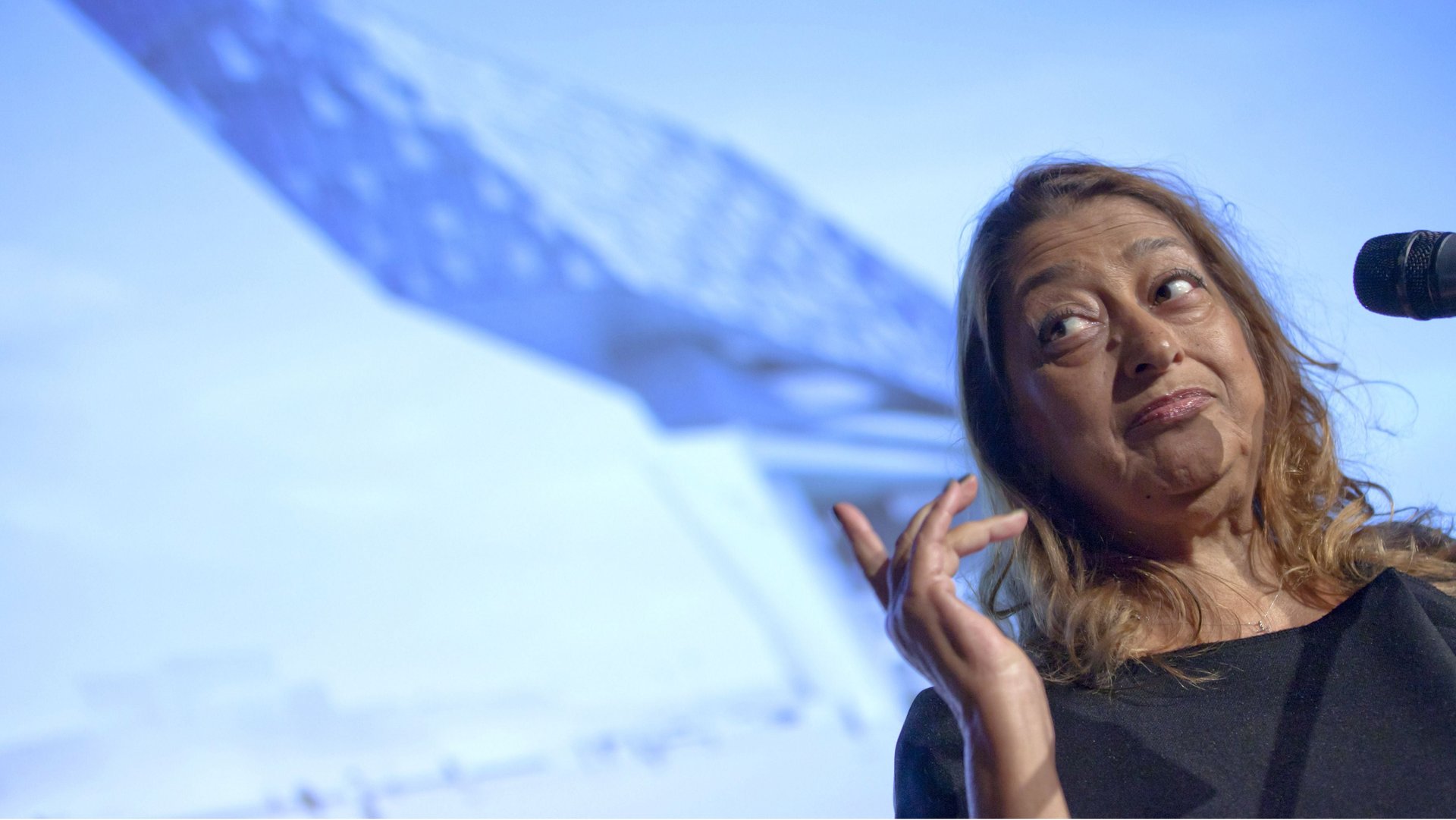Zaha Hadid sued a prominent architecture critic for defamation, and now the critic is apologizing
Zaha Hadid is no stranger to bad press. The Pritzker Prize-winning architect has been criticized for taking money from authoritarian patrons, for working in places where hundreds of migrant construction workers have died, and for designing buildings that look ridiculous. Her usual response has been a defiant shrug.


Zaha Hadid is no stranger to bad press. The Pritzker Prize-winning architect has been criticized for taking money from authoritarian patrons, for working in places where hundreds of migrant construction workers have died, and for designing buildings that look ridiculous. Her usual response has been a defiant shrug.
But a recent essay (paywall) by Martin Filler in the New York Review of Books apparently got under her skin. Filler, a prominent architecture critic, took Hadid to task for designing the 2022 World Cup stadium now being built in Qatar, where labor conditions are appalling (paywall). Filler wrote:
“She has unashamedly disavowed any responsibility, let alone concern, for the estimated one thousand laborers who have perished while constructing her project thus far. ‘I have nothing to do with the workers,’ Hadid has claimed. ‘It is not my duty as an architect to look at it.'”
Last week, Hadid sued Filler and the NYRB for defamation, demanding that the article be taken down and a retraction published; she also asked for damages “in an amount to be proven at trial.” The complaint (pdf), which was filed in the New York State Supreme Court in Manhattan, points out that the deaths occurred on projects that Hadid had nothing to do with, that construction of Al Wakrah stadium won’t start until 2015 (the site is currently being excavated), and that her alleged indifference is a matter of debate. (Not under debate is that workers on the project are being paid as little as 75 cents an hour.)
Yesterday, the NYRB posted an apology by Filler on its homepage, retracting his earlier claims: “There have been no worker deaths on the Al Wakrah project and Ms. Hadid’s comments about Qatar that I quoted in the review had nothing to do with the Al Wakrah site or any of her projects.”
It’s not yet clear how the retraction will affect the lawsuit. “Ms. Hadid together with counsel are reviewing it now and will respond after further careful consideration,” one of Hadid’s lawyers told Reuters.
Two years ago, another article by Filler for the NYRB, on the architect Rem Koolhaas (paywall), was corrected for a number of errors that Filler apparently sourced from Wikipedia. When Koolhaas complained, Filler responded, “I am surprised that for someone so concerned about his image and the spread of misinformation, neither Koolhaas nor his office has bothered to correct his Wikipedia entry.”